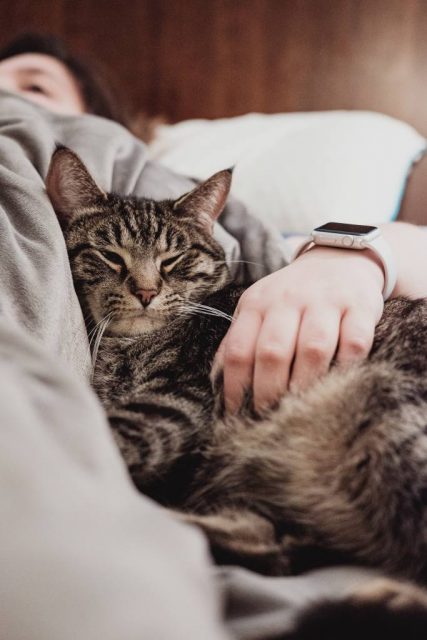
Chances are that you or someone you know has gotten sick in the last month. As we lead into the new year, with frigid temperatures and a return to routine (school and work), it’s likely that there will be more waves of viruses and colds moving through. Getting sick often involves all parts of our lives, not just our physical bodies. Below are four strategies for responding to getting sick in a way that acknowledges our communities, our mental health, and our relationships.
SLOW DOWN while you are sick

As a culture, we often prize those who are seemingly unstoppable; those people are severely sick, but show up to work anyway. This is a little bit (or a lot!) backwards. If you are feeling sick, your body needs you to stop. It is a lot of work, and requires a lot of physical exertion, to fight off an illness. Resting your body allows it to defer more energy to the fight, and can help you feel better faster.
Know that your mood might dip when you are sick
Your body is working so hard to get you well again, which takes a lot of energy. In the meantime, sickness often means that you’re not sleeping well or eating well, and can’t get out and do the things you want to do. You may notice feeling a little low or depressed while you’re sick, and sometimes for a few days before and after. Have patience with yourself, stay in contact with important others, and give your body the rest that it needs. If you’re having trouble shaking it, tell someone, or make an appointment to check in about it somewhere.
“You may notice feeling a little low or depressed while you’re sick, and sometimes for a few days before and after.”
Protect others
Passing sickness is inevitable in some ways; we can’t all live in total isolation from one another. However, it may be possible to help slow or minimize the spreading of germs when you’re sick, with strategies like:

- Don’t shake hands!
- Avoid going out into public places (when you can). You don’t have to live in full quarantine, but if you are contagious, coughing and sneezing a lot, having to blow your nose often, etc., these are all very easy ways to spread germs. It’s good to take care of yourself and do what you need to do, but it’s also important to be caring of your community and try not to expose others if you don’t need to. (It’s probably also better for you to just stay home and rest!)
- Inform important others. If you have an appointment*, or your child has a play date, or you’re having friends over, let them know that you (or someone in your home) is sick. Give them the opportunity to decide if they are willing to expose themselves or not.
Be understanding when others are sick
Be forgiving if people need to miss time. Yes, it can be annoying to have a coworker out when you are trying to do a project, or annoying to have a student miss information and have to make it up at other times, or have to cover someone’s shift because they are sick. It is reasonable to be frustrated – one person being sick often interrupts the whole system. However, in the long term, it would be healthier to our community, and better for minimizing the spread of illness, if there was a little more acceptance for individuals missing time. Reinforce others’ needs/ability to care for themselves (and not come and expose you!)
*Note: This applies to Hope Springs! We see children and families here. There are a number of people in and out of our waiting room in the course of a day, some of whom may have compromised immune systems or other health concerns. Please help us keep everyone healthy by not bringing yourself or anyone else into our waiting room or offices that you know is sick. If you need to reschedule because you or your child is sick, please let us know as soon as you’re able and we will work with you to come up with a new plan.
![]()
